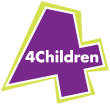Types of legal structures and organisations
Most privately run childcare providers will be either sole traders or limited companies, and their governance arrangements are therefore fairly straightforward.
The legal form of most not-for-profit early years and childcare providers will either be unincorporated associations or a charitable company limited by guarantee. They will have a “constitution” which is a governing document (known as Articles of Association for a company). The constitution will state whether or not the Board (or Management Committee) members are answerable to a wider group of people (known as a “membership”) such as local parents and community representatives.
If an organisation is incorporated, it does not mean it is “private sector”. There are a number of types of company such as company limited by guarantee where the constitution can be amended to contain restrictions as to how surplus profits are used and assets are disposed of (for no personal gain), consistent with a not-for-profit organisation.
There is an introduction to legal forms on the website for the National Council for Voluntary Organisations http://www.ncvo-vol.org.uk/ (see below) with further information available on the website http://www.getlegal.org.uk/.
There are 4 common types of legal structure and a number of other, less common, legal forms. The most common are:
- An unincorporated association – this is a simple membership structure and is often suitable for smaller organisations with lower risk activities and a membership.
- A Trust – this is a traditional structure often used by grant making trusts or smaller service providing organisations that generally do not have a membership.
- Company Limited by Guarantee – this type of structure is registered with Companies House and is often suitable for larger organisations that employ staff, own buildings and have significant contracts or other responsibilities.
- Charitable Incorporated Organisation (CIO) - a new legal structure which became available in December 2012. Download Charitable Incorporated Organisation’s presentation.
- Industrial and Provident Society (IPS) – this is a corporate body like a company but registered with the Financial Services Authority.
Companies Limited by Guarantee and IPSs are legal entities in their own right. This means that any agreements or contracts are held in the name of the company. This helps limit the financial liability of board members (although it does not cover every potential liability).
Companies and IPSs must comply with a number of regulatory requirements, including filing information with their regulator and preparing accounts according to special rules.
Unincorporated associations and trusts are relatively easy to set up and administer, but they have no independent legal identity; agreements, contracts and leases are held in the names of the board or management committee members personally. Board (or management committee members) could potentially be held personally liable if the organisation could not meet its obligations.
Organisations with the legal forms listed above can choose to apply to register as a charity with the Charity Commission.
A charity is not a legal form nor a type of organisation but represents a commitment to operate within a regulatory framework, providing assurance to beneficiaries, funders and to the general public that their aims and purposes are for the public benefit .
Some incorporated organisations, particularly companies limited by guarantee, register as Community Interest Companies (CICs) with the CIC regulator. These organisations have a commitment to operating within a framework to deliver community benefit.
So in summary, non-profit early years and childcare providers will tend to be in one of the following categories:
- Simple association (not a company, not a charity) – will have a management committee
- Charitable association (not a company; registered with Charity Commission) – will have a Board of Trustees
- Company limited by guarantee and registered with the Charity Commission – will have both Charity Trustees and Directors (often these are the same people) visit playwork.co.uk and refer to Model A to C of the Getting it Right Legally publication)
- Charitable Incorporated Organisation (CIO) - a new legal structure which became available in December 2012. Download Charitable Incorporated Organisation’s presentation.
- Company limited by guarantee and registered with the Regulator of Community Interest Companies – will have a Board of Directors.visit playwork.co.uk and refer to Model D of the Getting it Right Legally publication)
For more information about legal structures and governance, have a look at some of the links to the right. You can also find access to template documents at the links to the left which you can use within your organisation.

